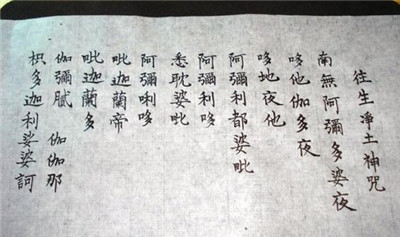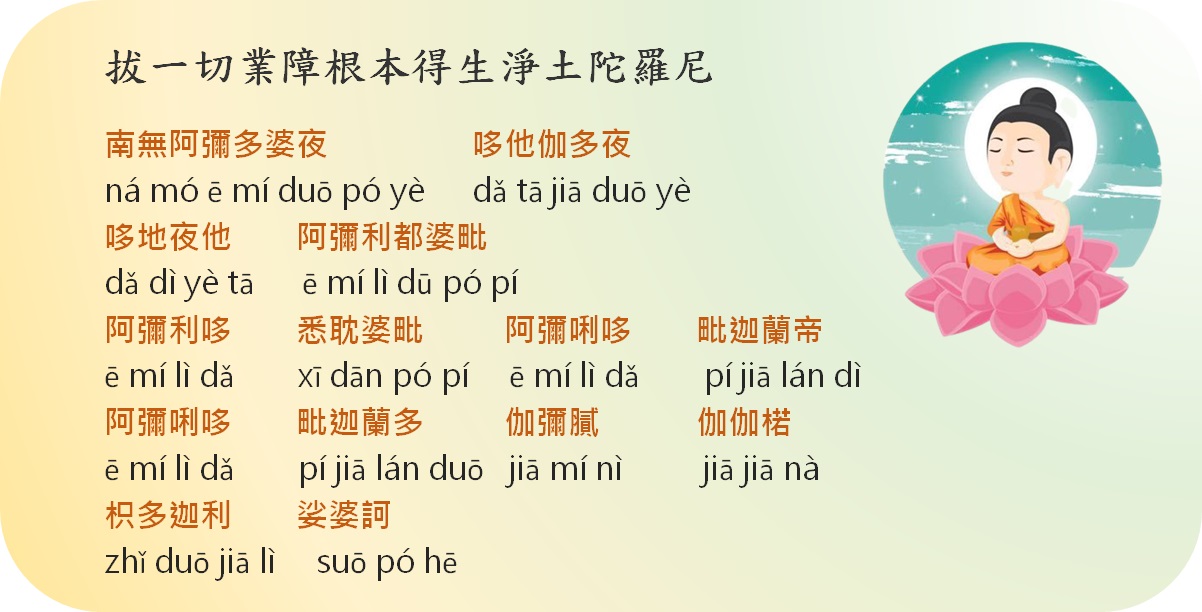Wangsheng Mantra
往生咒
Category: Religious Elements
Traditional Representation

The Wangsheng Mantra, also known as the Rebirth Mantra, is a profound and revered chant in Pure Land Buddhism. Originating from the Sanskrit "Amitābha Mantra", it is believed to invoke the power of Amitabha Buddha, the Buddha of Infinite Light. In Chinese culture, this mantra is deeply associated with concepts of afterlife and spiritual transcendence. Practitioners believe that reciting this mantra with sincere devotion can purify one's karma and ensure rebirth in the Western Pure Land, a realm of bliss and enlightenment. The mantra's significance extends beyond religious practice; it has become a cultural touchstone, often used in literature and art to symbolize hope, redemption, and the cyclical nature of existence. Its rhythmic repetition is thought to induce a meditative state, aligning the practitioner with higher spiritual frequencies.
In-Game Representation

In "Black Myth: Wukong", the Wangsheng Mantra is reimagined in a striking fusion of ancient spirituality and futuristic aesthetics. Players encounter a young monk chanting this sacred mantra in a "cyberpunk" style, creating a jarring yet mesmerizing contrast between tradition and modernity. This innovative representation serves multiple purposes in the game: it acts as a narrative device, hinting at the timeless nature of spiritual quests; it provides a unique auditory experience, blending traditional chanting with electronic undertones; and it serves as a gameplay mechanic, possibly granting players temporary invulnerability or healing powers when activated. The juxtaposition of the ancient mantra with futuristic elements not only enriches the game's cultural depth but also prompts players to reflect on the enduring relevance of spiritual practices in an ever-changing world. This creative interpretation challenges players to consider how ancient wisdom might adapt and persist in a technologically advanced future.